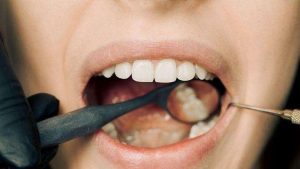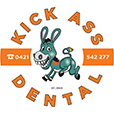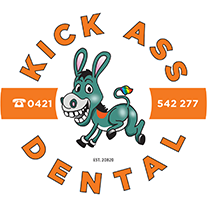The Most Common Dental Problems in NSW – And How to Prevent Them
Dental health is an essential part of overall wellbeing, yet many people across New South Wales (NSW) experience preventable oral health issues each year. Factors such as diet, lifestyle, access to dental care, and daily habits all contribute to the growing number of dental concerns among both children and adults. This guide explores the most common dental problems in NSW and provides practical, preventative strategies to help you protect your smile for life.
Understanding Dental Health Trends in NSW
Across NSW, oral health statistics reveal that many individuals experience tooth decay, gum disease, and other dental problems far earlier than expected. Poor oral hygiene, busy lifestyles, and irregular dental check-ups often contribute to these issues. By understanding what the most common problems are and how to avoid them, you can take control of your oral health and reduce the need for costly or complex treatments later in life.
The Most Common Dental Problems in NSW
1. Tooth Decay (Cavities)
Tooth decay remains the number one dental problem affecting people of all ages in NSW. Sugary snacks, acidic drinks, and inconsistent brushing contribute to plaque build-up. When plaque is not removed, it produces acids that attack the tooth enamel, leading to cavities.
Signs of tooth decay:
Sensitivity to hot, cold, or sweet foods
Visible holes or dark spots on teeth
Toothache or discomfort while eating
Prevention Tips:
Brush twice daily with fluoride toothpaste
Reduce sugary foods and drinks, especially between meals
Floss daily to remove plaque between teeth
Attend regular check-ups so dentists can detect early decay
2. Gum Disease (Gingivitis and Periodontitis)
Gum disease is another widespread dental issue in NSW. It starts as gingivitis—a mild form of gum inflammation—but can progress to periodontitis if left untreated. Severe gum disease can lead to gum recession, loose teeth, and even tooth loss.
Common symptoms include:
Swollen or bleeding gums
Persistent bad breath
Receding gum line
Loose or shifting teeth
Prevention Tips:
Maintain daily brushing and flossing
Avoid smoking, as it increases gum-disease risk
Have professional dental cleanings at least twice a year
Use antibacterial mouthwash to reduce plaque bacteria
3. Tooth Sensitivity
Many NSW residents experience tooth sensitivity, often caused by worn enamel, tooth grinding, gum recession, or untreated tooth decay. Sensitivity can make eating or drinking uncomfortable and may indicate deeper oral issues.

Typical triggers include:
Cold foods and drinks
Hot beverages
Sweet or acidic snacks
Prevention Tips:
Brush with a soft-bristled toothbrush
Use desensitising toothpaste
Avoid excessive consumption of acidic foods
Seek dental advice if sensitivity persists longer than two weeks
4. Teeth Grinding (Bruxism)
Teeth grinding is increasingly common, particularly in adults. Stress, anxiety, misaligned teeth, and sleep disorders can all contribute to bruxism. Over time, grinding can wear down enamel, cause jaw pain, and lead to headaches.
Signs of bruxism:
Flat or worn tooth surfaces
Morning headaches
Jaw or ear pain
Cracked or chipped teeth
Prevention Tips:
Wear a custom nightguard to protect teeth
Practice stress-reducing activities such as meditation
Avoid stimulants like caffeine before bedtime
Address misalignment issues with orthodontic treatment if needed
5. Bad Breath (Halitosis)
Bad breath is a common concern among NSW adults and can be caused by poor oral hygiene, gum disease, dry mouth, or certain foods. In some cases, it may indicate underlying health problems.
Prevention Tips:
Brush teeth and tongue daily
Drink plenty of water to avoid dry mouth
Replace your toothbrush every three months
Treat gum disease early
6. Dental Erosion
Dental erosion occurs when acids wear away the tooth enamel. This condition is often linked to frequent consumption of soft drinks, citrus fruits, sports drinks, and other acidic foods. Once enamel is lost, it cannot be restored naturally.
Prevention Tips:
Limit acidic beverages
Rinse with water after consuming acidic foods
Use fluoride toothpaste to strengthen enamel
Avoid brushing immediately after acidic meals
7. Orthodontic Issues (Crooked or Misaligned Teeth)
Orthodontic problems are common among children in NSW but can affect adults as well. Crowded, misaligned, or gapped teeth can make cleaning harder and increase the risk of decay and gum disease.
Prevention Tips:
Regular dental check-ups during childhood
Early orthodontic assessments
Use of braces or clear aligners for correction
Maintain good oral hygiene to reduce complications
8. Dental Emergencies
Whether due to sports injuries, accidents, or sudden tooth pain, dental emergencies are frequent across NSW. Cracked teeth, knocked-out teeth, and severe infections require immediate care to prevent long-term damage.
Prevention Tips:
Wear a mouthguard during sports
Address dental pain early
Avoid biting hard objects like ice or nutshells
Maintain regular dental visits
How Lifestyle Choices in NSW Contribute to Dental Issues
1. High Sugar Consumption
Sugary snacks, soft drinks, and processed foods remain readily available, contributing significantly to tooth decay.
2. Busy Lifestyles
Many NSW residents juggle work, family, and social commitments, making it easy to skip dental check-ups or neglect proper brushing.
3. Limited Access in Rural Areas
Residents in rural or remote NSW regions may experience barriers to accessing regular dental care, increasing the likelihood of dental problems.
4. Smoking and Alcohol Use
Both smoking and excessive alcohol consumption significantly increase the risk of gum disease, dry mouth, and oral cancer.
How to Prevent Common Dental Problems in NSW
The good news is that most dental problems are preventable with consistent habits and timely care.
1. Brush and Floss Daily
Use fluoride toothpaste and brush for at least two minutes twice a day. Flossing removes plaque from between teeth where brushing cannot reach.
2. Maintain a Balanced Diet
Limit sugary snacks and acidic drinks. Choose water, dairy products, and fibre-rich foods to help neutralise acids and protect enamel.
3. Visit Your Dentist Regularly
Routine check-ups every six months allow early detection of potential issues before they become serious.
4. Protect Your Teeth During Sports
Wearing a mouthguard can prevent serious injuries, especially for children and teens.
5. Address Problems Early
If you notice pain, sensitivity, or unusual changes in your mouth, don’t wait—consult a dentist promptly.
Conclusion
Understanding the most common dental problems in NSW—and how to prevent them—is the key to maintaining lifelong oral health. From tooth decay and gum disease to sensitivity and grinding, most issues can be managed or avoided with proper care, regular dental visits, and healthy habits. By staying informed and proactive, you can keep your smile strong, healthy, and confident for years to come.





